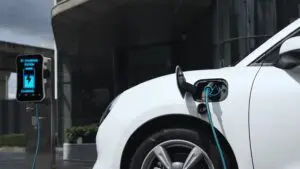New analysis has shown that a lifting of Victoria’s gas exploration moratorium is unnecessary because investments in energy efficiency and reductions in gas use are a more effective way to bridge a predicted gas supply shortfall.
The findings have been outlined in an analysis commissioned by Environment Victoria, after the Australian Energy Market Operator predicted there could be a shortfall of gas supplies from 2024 in the last 2019 Gas Statement of Opportunities.
The analysis, completed by consultants Northmore Gordon, found that Victoria could successfully avoid a potential shortfall in supply by investing in measures to reduce overall demand for gas, and that increasing gas production was unnecessary.
“The cheapest and cleanest way for Victoria to avoid any future gas shortage is by getting smart with demand reduction measures,” Environment Victoria campaigns manager Dr Nicholas Aberle said.
“Victorians are the biggest gas consumers in the country – half of our gas usage is in residential heating and hot water alone. We need to shift our thinking: the question is how do we shift our energy needs away from gas, not how we get more of it out of the ground.”
In their assessment, Northmore Gordon found that there were ample, low-cost, opportunities to reduce Victoria’s gas consumption, as well as serving as an ideal target for green stimulus measures.
Investments in replacements of inefficient ducted heating systems, improvements in housing insulation, and a range of energy efficiency measures could reduce Victorian gas use by as much as double the forecast shortfall in 2024.
Northmore Gordon found that by investing in energy efficiency measures, and replacing old equipment, not only could Victoria avoid a gas supply shortfall, but that households would also be left better off as a result of paying less for their energy use.
The analysis recommended a series of policy options for the Victorian government, including an expansion of the Victorian Energy Upgrades and the Victorian Energy Efficiency Certificates programs, to incentivise households and businesses to replace inefficient appliances.
Victoria ranks as Australia’s highest users of gas, with higher numbers of households reliant on gas for residential heating, as well as for hot water systems. Switching these with electric alternatives can help cut gas use and provides and opportunity to run them on renewable electricity supplies.
“Replacing Victoria’s 600,000 20-year-old ducted gas heaters would not only slash energy bills, it would provide significant economic stimulus as we emerge from the pandemic, employ tradies across the state and give a shot in the arm to appliance retailers,” Dr Aberle added.
“Ultimately we need a plan to phase out the use of gas, to help us avoid future shortages, keep energy bills down for homes and businesses, and to cut our greenhouse gas emissions.”
Environment Victoria said that the Victorian government’s plan to end a long-standing moratorium on the exploration for new onshore conventional gas resources was misguided and that it was missing an opportunity to avoid locking in a continued reliance on fossil fuels.
“Any talk of a gas-led recovery from the pandemic is dangerously misguided. It would serve only to lock households and businesses into an expensive and polluting fuel,” Aberle added.
“The Andrews government’s recent decision to allow onshore conventional gas is a disappointing example of how this old thinking persists.”
“Gas is not a ‘transition fuel’: it’s an increasingly expensive fossil fuel that is a significant contributor to Victoria’s greenhouse emissions. The Andrews government needs to start transitioning away from gas if it’s serious about playing our part in tackling climate change.
The Victorian Greens announced on Tuesday that they would vote against legislation lifting the Victorian gas exploration moratorium, but the bill is expected to pass the parliament’s lower house where the Victorian Labor party holds a majority of seats.
RenewEconomy and its sister sites One Step Off The Grid and The Driven will continue to publish throughout the Covid-19 crisis, posting good news about technology and project development, and holding government, regulators and business to account. But as the conference market evaporates, and some advertisers pull in their budgets, readers can help by making a voluntary donation here to help ensure we can continue to offer the service free of charge and to as wide an audience as possible. Thank you for your support.










